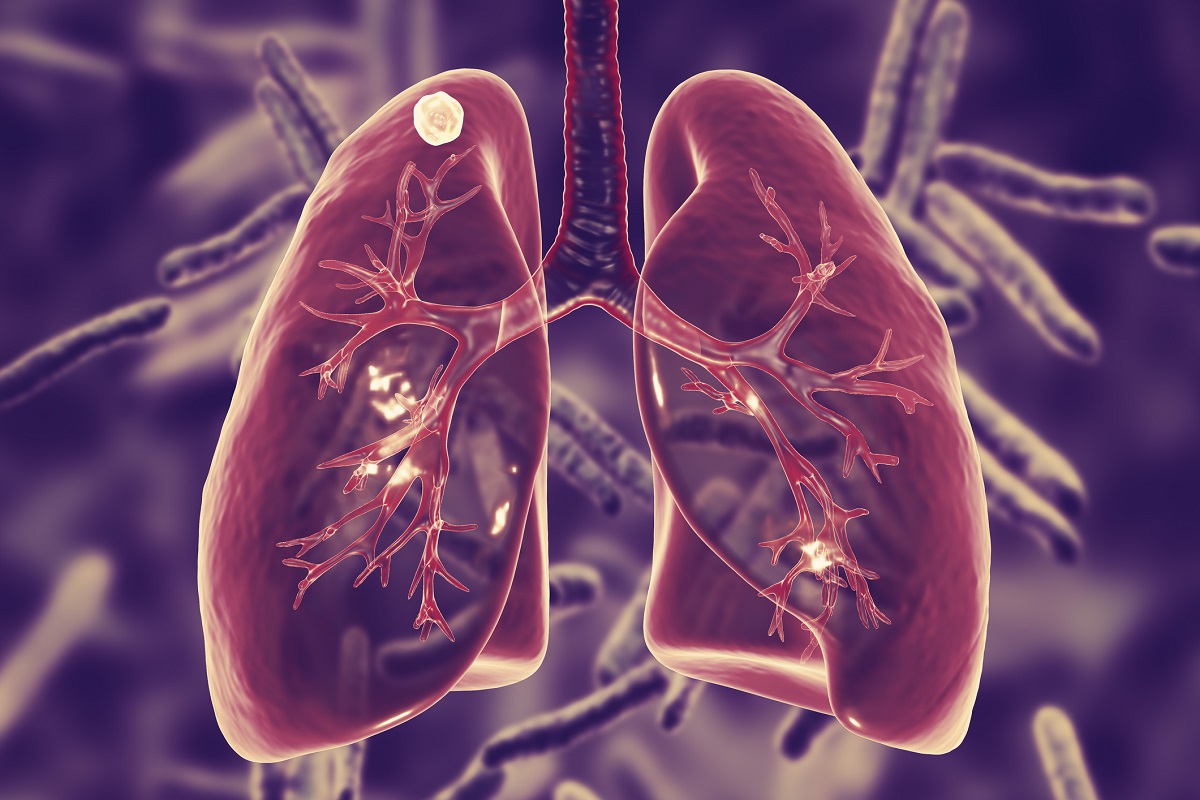KEY TAKEAWAYS
- The DEDALUS phase 2 trial aimed to evaluate safety of chemo-immunotherapy followed by RT plus durvalumab in patients with unresectable NSCLC.
- The primary endpoint was safety.
- The results showed that the DEDALUS sequence is feasible and tolerable, supporting continued patient enrollment and longitudinal ctDNA sampling.
In this phase II, single-arm study, patients with stage III unresectable non-small cell lung cancer (NSCLC), ineligible for concurrent chemoradiotherapy by a MDT, receive sequential treatment.
Andrea Riccardo Filippi and the team spearheaded a study that aimed to evaluate the safety and tolerability of sequential chemo-immunotherapy and de-intensified radiotherapy followed by durvalumab maintenance.
The study enrolled patients with tumors expressing any PD-L1 but negative for EGFR/ALK. After 3 cycles of CT-durvalumab, responders (SD, CR, PR) received hypo-fractionated thoracic RT (45 Gy over three weeks) concurrently with durvalumab, followed by durvalumab maintenance for up to 12 months or until progression. Safety, defined as the incidence of possibly related adverse events (PRAES) within the first 6 months from the first durvalumab dose, served as the primary endpoint. Benchmark comparison with PACIFIC-6 safety and efficacy will be conducted using identical inclusion/exclusion criteria.
The study initiated screening in February 2022, with 21 patients screened and 20 enrolled across three Italian centers. Baseline characteristics revealed a median age of 71 years (range: 51-84), with 11 male and 9 female participants, all smokers. Histologically, 8 patients had squamous and 12 non-squamous tumors; staging comprised 4 stage IIIA, 13 IIIB, and 3 IIIC cases. PD-L1 expression was negative in 7 patients, 1-49% in 6, and ≥50% in 5 (2 not available).
About 10% of patients experienced grade 3/4 possibly related adverse events during the induction phase, leading to permanent discontinuation (two cases of neutropenia with sepsis). Additionally, 2 patients discontinued treatment due to unrelated grade 3 serious adverse events. Disease progression occurred in 5 patients (1 during induction, 2 before radiotherapy, 1 post-radiotherapy, and 1 during maintenance). Nine patients remain on treatment without recorded possibly related adverse events, while two are in follow-up.
The study concluded that the preliminary safety analysis affirms the feasibility and tolerability of the DEDALUS sequence. Consequently, the trial will persist in patient enrollment, alongside longitudinal blood sample collection for ctDNA measurement at baseline, after CRT, and upon disease progression.
The trial was sponsored by the IRCCS Policlinico S. Matteo.
Clinical Trial: https://clinicaltrials.gov/study/NCT05128630
Filippi AR, Saddi J, Agustoni F, et al. (2024) “ Preliminary analysis on safety of the DEDALUS phase II trial: Induction chemo-durvalumab followed by reduced-dose radiotherapy and maintenance durvalumab for patients with unresectable stage III NSCLC.” Presented at ELCC 2024. Annals of Oncology (2024) 9 (suppl_3): 1-10. 10.1016/esmoop/esmoop102570 (125P)



